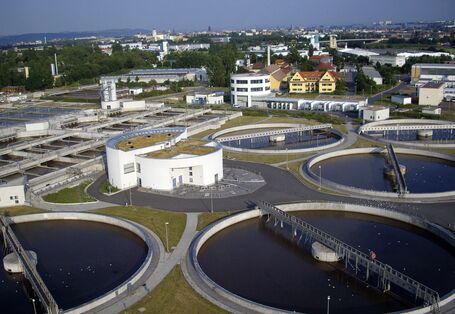Press
Press releases
505–516 of 725
Fighting dandelions with a brush and hot water

UBA symposium proves that cities and municipalities can often do without pesticides
Online debate: How can we adopt a resource-conserving lifestyle?

Have a say in the update to the German Resource Efficiency Programme
Contest for 'Blue Angel Prize 2015' has started

The 'Blue Angel Prize' contest has been launched for the fourth time in the framework of the German Sustainability Award. The prize distinguishes companies which support the cause of the Blue Angel ecolabel in an extraordinary way and thereby excel in their efforts to help protect the environment.
Effects of climate change clearly noticeable in Germany

Federal government publishes the first monitoring report on climate impacts and adaptation
First Blue Angel for environmentally friendly washing-up liquid

Which washing-up liquid has the least impact on the environment? Besides the EU ecolabel, the Blue Angel ecolabel now offers orientation.
Too much noise: One in every eight children shows signs of impaired hearing

Street traffic, neighbours or aircraft noise: one in every two people in Germany feels disturbed or annoyed by noise. Children and young people also suffer from noise – often with sometimes grave consequences.
Energy self-sufficient and ecological role model: UBA building extension in Dessau-Roßlau

Building project to start in summer 2015, completion in 2017
25 April is World Penguin Day

Global warming has krill stocks running low – how are penguins reacting?
UBA's 2014 emissions data indicates trend reversal in climate protection

Greenhouse gas emission levels in Germany in 2014 were lower than in the previous year for the first time in three years.
Umweltbewusstsein 2014 study: More and more people see protection of the environment as part of the solution, not the problem

Environmental awareness among Germany's population is undergoing a change, says a new study by the Federal Environment Ministry and the Federal Environment Agency (UBA). According to the study, more and more people see protection of the climate and the environment as part of the solution to challenges of the future and securing prosperity, competitiveness and jobs.
Can a fourth waste water treatment stage be financed by the waste water charge?

Study answers 'yes', as a part of an overall strategy to reduce micropollutants in water
Salt-rich Wadden Sea: Water body type of the year 2015

The salt-rich Wadden Sea has been named "Water body type of the Year 2015“. It comprises about 20% of Germany's coastal waters and is located on the country's North Sea coast between the North Sea and East Frisian islands, the mainland and the Jade Bight.